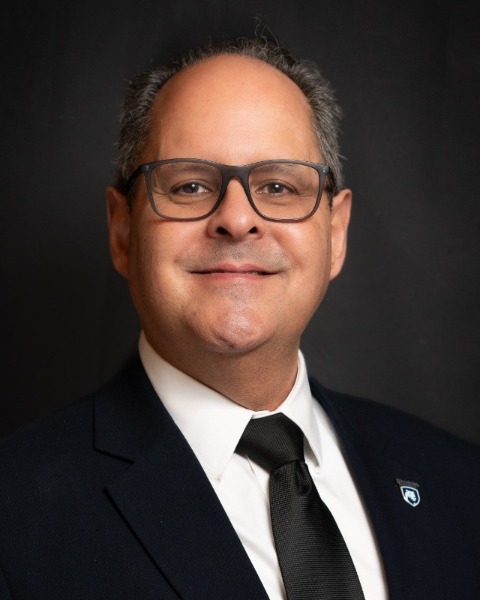Oral Presentation - 15 minutes for each presentation
Leadership, Mentoring, and Training the Next Workforce
C1. Oral Session: Amplifying Underrepresented Voices in Health Research and Tailoring Mentorship Programs
C1.02 - Oral: Amplifying Lion Voices: A Seminar Series to Elevate Underrepresented Voices in Health Research
Wednesday, April 16, 2025
3:00 PM - 3:15 PM PST
Location: Main Stage (International Ballroom), 2nd Floor
Earn 1.0 Advanced CECH
Area of Responsibility: Area VII: Leadership and Management
Subcompetencies: 7.3.1 Facilitate understanding and sensitivity for various cultures, values, and traditions., 7.3.2 Facilitate positive organizational culture and climate.
Research or Practice: Practice
Subcompetencies: 7.3.1 Facilitate understanding and sensitivity for various cultures, values, and traditions., 7.3.2 Facilitate positive organizational culture and climate.
Research or Practice: Practice

Raffy Luquis, PhD (he/him/his)
Professor of Biobehavioral Health
Penn State Harrisburg
Middletown, Pennsylvania, United States
Presenter(s)
Learning Objectives:
At the end of this session, participants will be able to:
- Explain at least two challenges faced by underrepresented public health researchers. (7.3.1)
- Summarize at least two lessons learned by underrepresented public health researchers. (7.3.2)
Detailed abstract description: Historically, individuals from diverse and underrepresented groups have experienced barriers and challenges navigating academia. Developing a research agenda with a diverse and underrepresented population can increase these challenges. One of the objectives of the National Institute of Health's strategic plan for diversity, equity, inclusion, and accessibility (DEIA) is cultivating DEIA within the workforce. As such, a public health workforce should feel welcome, safe, and valued regardless of race, ethnicity, sexual orientation, gender identity, age, language, abilities, or other defining characteristics.
The Penn State Clinical and Translational Science Institute’s (CTSI) vision is to enhance diversity, equity, inclusion, and belonging, including an understanding of the diversity of the research workforce, participants, and the community it serves. The CTSI leadership understands that diversity fosters innovation in research, knowledge production, and classroom learning, greater creativity in decision-making, and better preparation of students for work and citizenship in an increasingly global society. Under the leadership of the Director of Justice, Equity, Diversity, Inclusion and Belonging (JEDI-B), the CTSI developed the “Amplifying Lion Voices (ALV).” This quarterly seminar series was designed to elevate underrepresented voices in health research involving diversity, equity, and inclusion areas. This series aims to promote dialogue, encourage innovative collaboration across diverse researchers, faculty, staff, and students, and amplify diverse perspectives to foster belonging and an inclusive environment. As part of this series, we have conducted four interviews with scholars from diverse backgrounds. Each had the opportunity to discuss their upbringing, career path, challenges, and lessons learned as they developed and implemented their research agenda involving diverse populations and health equity. On average, forty people from four different campuses registered per session. Each session was videotaped and placed on the CTSI YouTube channel for any participant to view at any time. Cumulative evaluation from the ALV sessions on a five-point Likert-scale (i.e., strongly agree to strongly disagree) showed that over 70% of the participants who completed the survey strongly agreed that the “session was valuable,” nearly 70% strongly agreed that the session made them “consider how diversity positively impacts research,” and nearly 45% strongly agreed that “they plan to make changes to encourage inclusivity.” During this presentation, the author will discuss the development, implementation, and evaluation of the ALV to enhance collaboration among diverse health researchers.
